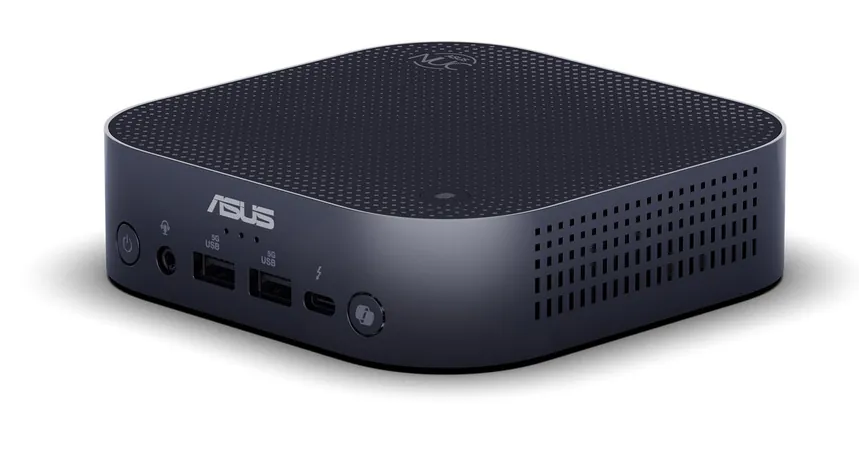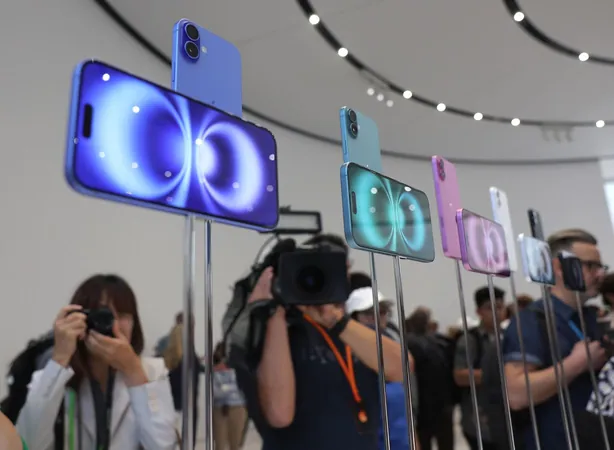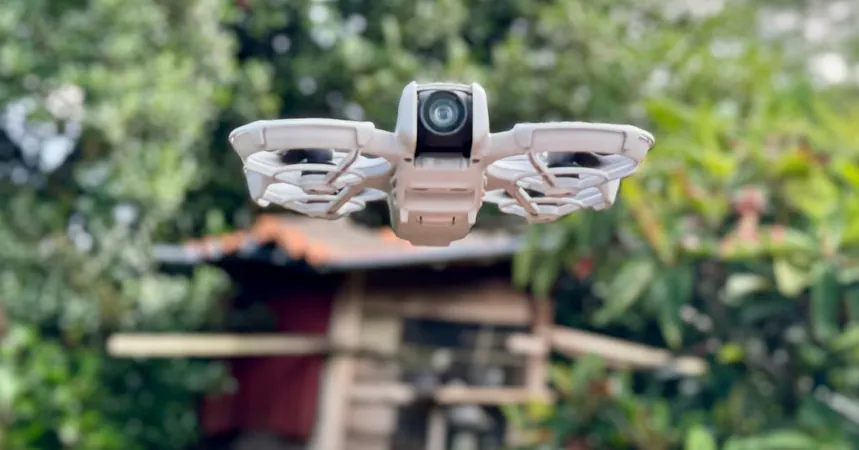
Microsoft’s Groundbreaking Mini AI PCs Are Set to Take Over!
2025-01-02
Author: Benjamin
Microsoft is on the brink of revolutionizing desktop computing with the introduction of mini PCs powered by its innovative Copilot Plus technology. Following the successful launch of Arm-based Copilot Plus laptops this past June, tech enthusiasts have eagerly awaited the desktop versions that promise AI-driven features such as Recall, Click To Do, and advanced image generation and editing capabilities within Windows 11.
Asus has taken the lead by unveiling the first mini PC compatible with Copilot Plus, the NUC 14 Pro AI, which is poised to make waves at the upcoming Consumer Electronics Show (CES). With a sleek design almost indistinguishable from Apple’s latest Mac Mini and a dedicated Copilot button, this mini PC is set to challenge Apple's dominance in the mini desktop market.
But the excitement doesn’t stop there. At the same time, Geekom has announced three new mini PCs that will be showcased at CES, featuring AMD’s Strix Point CPUs and Qualcomm’s Snapdragon X Elite processor—both of which are Copilot Plus compatible. However, the third model powered by Intel’s yet-to-be-released Arrow Lake-H processors might fall short of meeting Microsoft’s stringent NPU requirements for Copilot Plus.
Industry speculation suggests that CES will be a hotbed for additional Copilot Plus mini PCs from various Windows OEMs. Historically, CES has served as a launch platform for Microsoft’s latest devices, and last year saw a surge in OEMs incorporating dedicated Copilot keys into their keyboard designs. The presence of a Copilot button on the Asus mini PC underscores Microsoft’s collaborative strategy with hardware manufacturers to enhance the user experience.
Qualcomm’s involvement in mini PCs is particularly noteworthy as it ventures beyond laptops for the first time. Initially planning to launch its Snapdragon Dev Kit mini PC, Qualcomm faced manufacturing hurdles that led to a cancellation. However, the upcoming Snapdragon X Elite chips are expected to pave the way for new Copilot Plus-compatible all-in-one PCs that may debut at CES.
Looking forward, there is anticipation surrounding the potential upgrade of traditional desktop PCs with Copilot Plus features. Intel's recent Core Ultra desktop CPU hasn’t met Microsoft’s NPU requirements, leaving a wait for next-generation processors from Intel and AMD. For now, mini PCs and laptop-based all-in-ones are the focus for harnessing Copilot Plus features in desktop formats.
Moreover, Microsoft is poised to extend the reach of its Copilot technology beyond traditional computing devices. The prospect of seeing Copilot introduced on various unexpected hardware at CES is exciting, as Microsoft’s leadership hints at a future with dedicated AI hardware. Windows chief Pavan Davuluri recently stated that modern AI will inspire hardware innovations that could lead to purpose-built devices.
In a forward-looking vision, Yusuf Mehdi, Microsoft’s executive vice president, has discussed possibilities involving wearable technology that leverages AI for image recognition and health monitoring. This could indicate an exciting revival of Microsoft’s venture into health-related devices after the discontinuation of the Microsoft Band in 2016.
As we enter 2025, Microsoft is not slowing down. With plans to integrate Copilot into many screens that we interact with daily, the tech giant is ready to lead the charge in an AI-first future.
In other news, 2024 has emerged as a pivotal year for Windows on Arm. While Microsoft declared it the "year of the AI PC," significant strides have been made in enhancing performance and compatibility across the board. Windows users are now experiencing the advantages of Arm-powered devices firsthand—a remarkable shift in the computing landscape.
Stay tuned as Microsoft continues to forge its path in AI integration and hardware development, bringing us closer to a more intelligent and connected world. Don’t miss the revelations expected at CES—this could be the event that defines the future of computing!









 Brasil (PT)
Brasil (PT)
 Canada (EN)
Canada (EN)
 Chile (ES)
Chile (ES)
 España (ES)
España (ES)
 France (FR)
France (FR)
 Hong Kong (EN)
Hong Kong (EN)
 Italia (IT)
Italia (IT)
 日本 (JA)
日本 (JA)
 Magyarország (HU)
Magyarország (HU)
 Norge (NO)
Norge (NO)
 Polska (PL)
Polska (PL)
 Schweiz (DE)
Schweiz (DE)
 Singapore (EN)
Singapore (EN)
 Sverige (SV)
Sverige (SV)
 Suomi (FI)
Suomi (FI)
 Türkiye (TR)
Türkiye (TR)